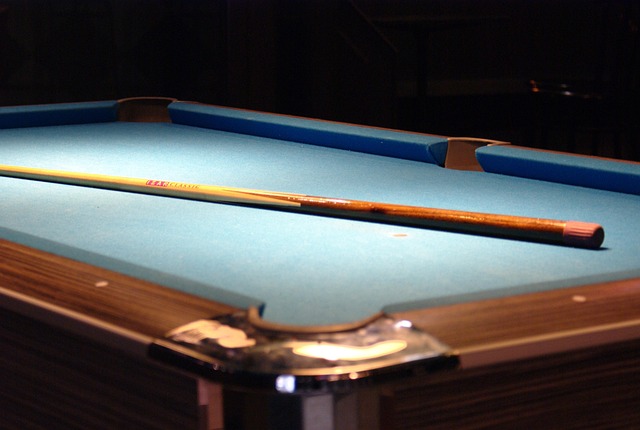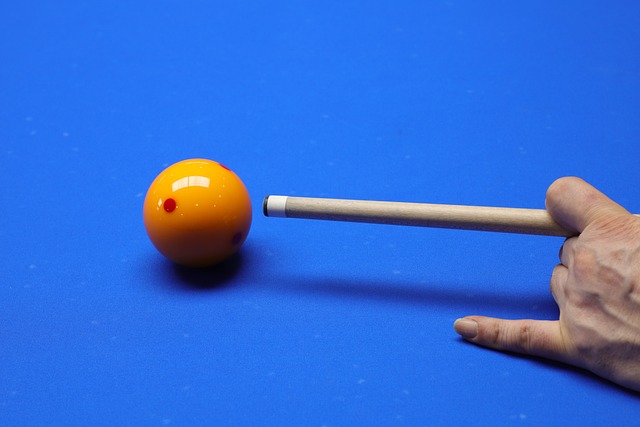The weight of a pool table varies greatly, influenced by material (slate, wood, metal), size, and design. Traditional full-size slate tables weigh 600–900 pounds, while portable recreational tables are significantly lighter at 150–300 pounds. Using a heavy-duty scale offers accurate measurement; solid wood frames and high-density slate contribute most to weight, followed by table size. Comprehending these factors helps determine "How heavy is a pool table?" based on specific needs.
“Curious about the weight of your pool table? This guide delves into the factors that determine how heavy a non-slate pool table can be. From construction materials to design variations, understanding these elements will help you navigate the market and make informed decisions.
We’ll explore different types, highlighting the significant differences in weight between models, offering insights on ‘how heavy is a pool table’ in various scenarios. Get ready to discover the secrets behind these iconic gaming pieces.”
- Understanding Pool Table Construction and Materials
- Factors Influencing the Weight of a Pool Table
- Weighing and Measuring Techniques for Pool Tables
Understanding Pool Table Construction and Materials

Pool tables come in various sizes and styles, each with unique construction and materials that influence their overall weight. Understanding these factors is crucial when questioning “how heavy is a pool table?” Modern pool tables are typically made from a combination of wood and metal to achieve a balance between durability and playability. The playing surface usually consists of a fiberglass or plastic bed, which is lighter than traditional slate but still robust enough to withstand intense gameplay.
The frame, supporting the table’s structure, is often crafted from solid wood, such as oak or maple. This not only adds to the table’s visual appeal but also contributes significantly to its weight. Additionally, metal components like legs and supports are commonly used for stability and to bear the table’s substantial mass, especially in larger models. The specific materials and construction methods employed by manufacturers can vary, leading to a range of weights among pool tables, with non-slate options generally offering more flexibility in terms of portability.
Factors Influencing the Weight of a Pool Table

The weight of a pool table varies significantly depending on several factors, which directly impact its overall construction and design. One of the primary considerations is the table’s material. While traditional slate tables are renowned for their precision and playability, they tend to be heavier due to the density of natural slate. On average, a full-size slate pool table can weigh between 600 to 900 pounds (272–408 kg).
Other materials, such as wood or composite surfaces, offer lighter alternatives but may compromise on performance. The size and configuration of the table also play a crucial role. Larger tables with more elaborate designs, featuring additional pockets or decorative elements, will generally be heavier. Conversely, smaller recreational tables designed for ease of movement and portability are significantly lighter, typically weighing between 150 to 300 pounds (68–136 kg).
Weighing and Measuring Techniques for Pool Tables

When determining the weight of a pool table, understanding the various factors that contribute to its overall mass is key. The most direct method for weighing a pool table involves using a heavy-duty scale capable of handling the substantial load. This process provides an accurate numerical value representing the table’s weight in pounds or kilograms. However, it’s worth noting that the weight can vary significantly based on several variables.
The construction materials play a significant role; tables with solid wood frames and high-density slate tops tend to be heavier than those with lighter alternatives. Additionally, the size of the table matters; larger pool tables will generally weigh more due to increased surface area and material volume. Measuring techniques go beyond weight, as dimensions like length, width, and height also provide insights into a table’s overall footprint and bulk, further assisting in understanding its physical attributes, especially when considering how heavy is a pool table.
In conclusion, the weight of a non-slate pool table can vary significantly based on its construction and materials. Generally, these tables range from 60 to 150 pounds (27 to 68 kg), with factors like table size, wood type, and additional features influencing the exact figure. Understanding these variations is key when considering the ideal table for your space and needs. To determine the specific weight, it’s recommended to consult manufacturer specifications or weigh the table directly, ensuring you’re aware of the “how heavy is a pool table” details before making a purchase.
